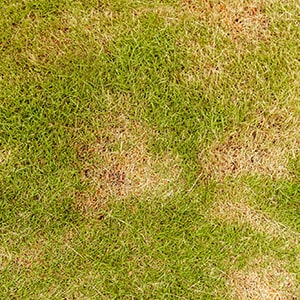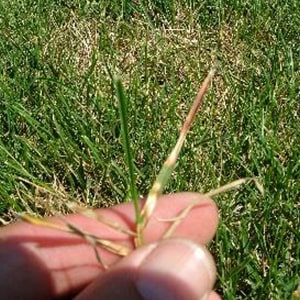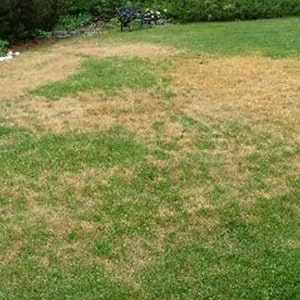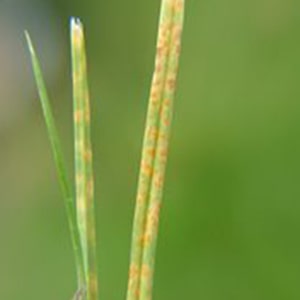Your Cart

Disease Control
Request a Quote
From Brown Patch to Dollar Spot...And Everything In Between!
Is your lawn looking patchy, discolored or 'off' in some way? Lawn Disease could be the culprit. Because disease in turf can be difficult to detect and diagnose, homeowners rely on the knowledge and ability of Weed Man Lawn Care professionals to diagnose problems occurring in their yards. There are many potential causes of Lawn Disease, including stressful weather conditions (ie. temperature, humidity, rainfall), as well as improper cultural practices (ie. watering and mowing). Noticeable symptoms vary drastically, dependent on the Lawn Disease in question. Don't leave it to chance...we can help. Once the problem is detected and corrected with Weed Man Iowa City's professionally-applied control products, we'll even consult you on your watering and mowing practices to curtail future problems. Brown Patch: Also known as Rhizoctonia Blight, this disease is a hot weather disease that can occur on all types of turf. It first appears in the lawn as rough, circular patches varying in size from 1 - 5 feet in diameter. Conditions favoring this disease in cool season grasses include temperatures above 85 F and high relative humidity; a minimum temperature of 61 F, combined with evening showers or night-time watering; or relative humidity about 95% for more than 8 hours. Conditions favoring this disease in warm season grasses include humid weather with moderate temperatures (45 - 70 F). Dollar Spot: Also known as Sclerotinia Homeocarpa, this disease can occur in lawns during warm weather. The fungus enters the grass plants when they are wet. Large, tan-colored wounds appear on the grass blades. These infected grass blades form rounded, damaged patches the size of a silver dollar. When Dollar Spot becomes more serious, patches will expand and damage the entire lawn. Leaf spots are small circles with yellow centers and dark borders on, and along, the leaf blade. Leaf Blight: Also known as Ascochyta Spp., this disease occurs during hot, humid weather. The disease enters the grass plants after evening mowing, followed by excessive night watering. In heavily infested patches, the fungus damages the lawn in circular or tubular patches that often form large, bleached areas. Close inspection of the plant reveals individual leaves dying from the tip down with a brownish purple line running horizontally across the plant. Rust: This disease generally appears on lawns in late summer and fall, when there are conditions of low light intensity and temperatures between 70 - 80 F with high humidity. Alternating weather patterns with changes from cool, wet weather to hot, dry conditions can also create suitable conditions for the disease. Rust often appears in the form of yellowy-orange flecks on the leaves and tips of grass plants. The spots soon enlarge to form round pustules that rupture to release powdery spores. There are several other Lawn Diseases that could be affecting your yard. For more information, please visit our Lawn Care Library. For a free lawn analysis and recommendations from a trusted Weed Man Iowa Cityprofessional, contact your local franchise today!Common Diseases That Could Be Affecting Your Lawn





